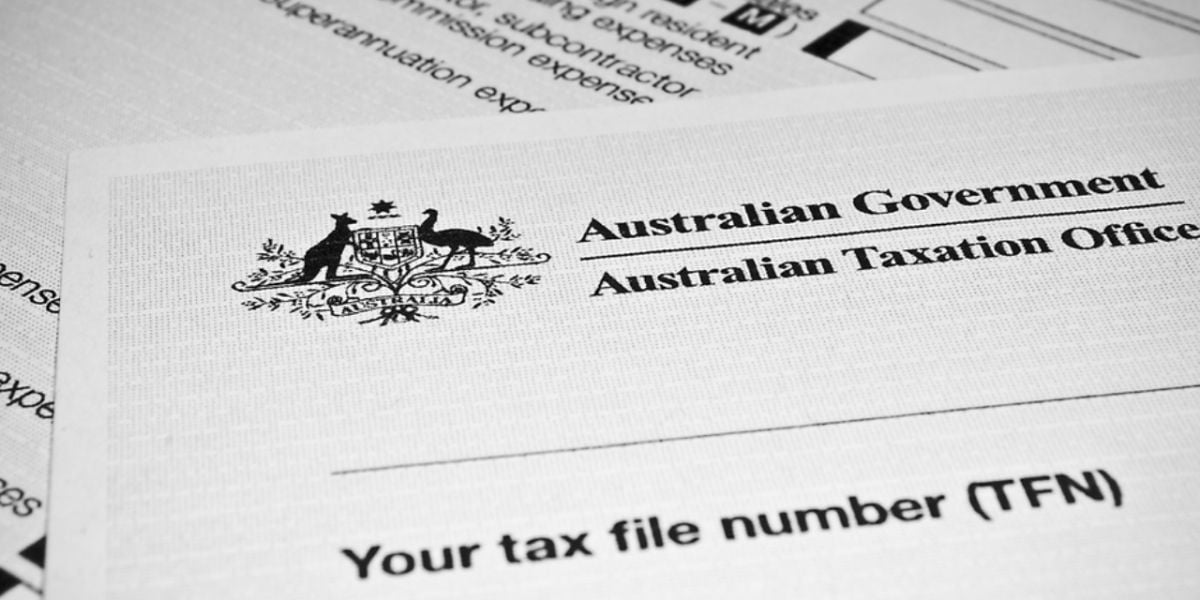
If you are planning to move to Australia and work while you are here, it is essential to understand the tax system before you arrive. The tax system in Australia is progressive, which means that the more money you earn, the more you will pay in taxes. Broadly speaking, there is a tax on three sources of income in Australia for individual taxpayers: personal earnings (such as salary and wages), business income, and capital gains, which includes the sale of real estate.

The financial year in Australia
The Australian fiscal year runs from July 1 to June 30, so income within that period is taxed each financial year. The national agency that is responsible for collecting taxes is the Australian Taxation Office (ATO), and most Australians file their tax returns between July and October. If you are completing your own tax return and filing it yourself with the ATO, the deadline is October 31. However, if you submit your return via an accountant, you may have more time to finalize everything. Income received by individuals is taxed yearly, and the rates are calculated based on income brackets. You can see the current individual income tax rates on the government's page.
Who pays income tax in Australia?
You are generally required to pay tax if you are considered an Australian resident for tax purposes. Your residency status plays an integral part in determining the amount of tax you are required to pay, and this depends on your visa type, how long you are in the country for, and your employment situation. Even if you don't have permanent residency or citizenship, you can become a resident for tax purposes if you are living and working in Australia for an extended period.
You are generally an Australian resident for tax purposes if you:
- Have continuously lived in Australia, or have come to Australia and live here permanently;
- Have been in Australia continuously for six months or more, and for most of that time, you worked in the same job and lived at the same place;
- Have been in Australia for more than six months of the year, unless your usual home is overseas and you do not intend to live in Australia;
- Go overseas temporarily, and you do not set up a permanent home in another country;
- Are an overseas student who has come to Australia to study and are enroled in a course that is more than six months long.
The government uses four tests to determine your residency status: the residency test, the domicile test, the 183-day test, and the commonwealth superannuation test. You can use the ATO's free tool to determine your Australian residency status for tax purposes.
If you are a foreign resident for tax purposes, you must declare any income earned in Australia on your tax return. This includes employment income, rental income, Australian pensions and annuities, as well as capital gains on taxable Australian property. Exceptions are those working on the Pacific Labour Mobility (PALM) scheme, as well as some on working holiday visas, who may not need to declare Australian-earned income.
Foreign residents for tax purposes in Australia also have slightly different tax rates and can claim an exemption from paying the Medicare levy. And while Australian residents for tax purposes have a tax-free threshold where they don't pay tax on the first AUD 18,200 (USD 11,896) of their earnings, this doesn't apply to foreign residents, who are taxed on every dollar that they earn.
2025-2026 tax rates for non-residents in Australia
Australia's tax brackets determine how much money you owe the tax office based on how much money you earn.
For instance, in the first tax bracket below, you will pay AUD 30c (USD 20c) tax for every AUD 1 (USD 65c) that you earn. So, for instance, if you earn AUD 10,000 (USD 6,524), you will pay AUD 3,000 (USD 1,951) tax.
1st tax bracket
Taxable income: AUD 0 — AUD135,000 (USD 0 — 88,241)
Tax on income: AUD 30c (USD 20c) each AUD 1 (USD 65c)
Once you reach the second tax bracket, you will pay AUD 40,500 (USD 26,472) tax on the first AUD 135,000 (USD 88,241). Then every AUD 1 (USD 65c) you earn above that amount, you pay AUD 37c (USD 24c) in the dollar in tax.
2nd tax bracket
Taxable income: AUD 135,001 (USD 88,241) — AUD 190,000 (USD 124,191)
Tax on income: AUD 40,500 (USD 26,472) + AUD 37c (USD 24c) each AUD 1 (USD 65c) over AUD 135,000 (USD 88,241)
Once you hit AUD 190,001 (USD 124,191), you are into the third tax bracket. You will pay AUD 60,850 (USD 39,774) tax on your first AUD 190,001 (USD 124,191), plus AUD 45c (USD 29c) for every dollar you earn after that.
3rd tax bracket
Taxable income: AUD 190,001 (USD 124,191) and over
Tax on income: AUD 60,850 (USD 39,774) + AUD 45c (USD 29c) each AUD 1 (USD 65c) over AUD 190,001 (USD 124,191)
Types of tax in Australia
In addition to income tax and the Medicare levy, there is also the Goods and Services Tax (GST), which is a flat 10% tax on all goods and services. GST is included in the retail price of products, so you won't need to worry about paying extra when you get to the checkout. The only time you need to worry about GST is if your business income is more than AUD 75,000 (USD 49,023).
There are also property taxes in Australia, such as Stamp Duty, Land Tax, and Capital Gains Tax (CGT).
If you invest in or own a property in Australia, you may be required to pay Stamp Duty when you purchase real estate. This is a state-based tax, and the amount will vary depending on your location in Australia. However, there is also a foreign surcharge that must be paid in addition to the Stamp Duty amount. In 2025, the surcharge was about eight percent.
Land Tax is another property tax in Australia, which is a yearly tax paid on the value of the land, not the buildings that you own. Foreign owners must also pay a land tax surcharge, which also varies across Australian states and territories. In 2025, in NSW, the surcharge land tax rate was five percent of the value of your land.
Another tax in Australia that you need to be aware of is the Capital Gains Tax. This applies if you sell something of value and make a profit, such as property. You will then need to add the profit that you made to your tax return. You only have to pay Capital Gains Tax when you sell your assets.
Tax file number (TFN) and Australian business number (ABN)
As with many other countries, income taxes are withheld from wages and salaries in Australia. A nine-digit TFN (tax file number) must be provided to your employer so that they can withhold the correct amount of tax from your pay, calculated using the various tax brackets. In the absence of this number, employers must withhold tax at the highest marginal rate. Likewise, banks must also withhold the highest marginal rate of income tax on interest earned on bank accounts if you don't provide your bank with your TFN.
Corporate and business taxpayers are required to provide their TFN or Australian Business Number (ABN) to the bank. Otherwise, the bank will also withhold income tax at the highest tax rate. Self-employed taxpayers also use ABNs to identify their business to the government and to ensure the correct tax is paid. Applying for a TFN or an ABN is very easy to do online, and both are processed through the Australian Government. To apply for both, you will need to provide identification, such as a passport or a driver's license.
Good to know:
It is not an offence to fail to provide a bank or financial institution with a tax file number or Australian Business Number. However, the bank or financial institution will be required to withhold income tax at the highest marginal tax rate.
Tax deductions in Australia
A wide range of tax deductions is available in Australia, including donations to local charities and other eligible organizations. A tax deduction is something that you paid for with your own money that you can claim on your tax return come tax time. Deductions can vary significantly, depending on your occupation, and may include items such as uniforms or workwear, electricity and internet costs for those who work from home, as well as travel expenses. To claim tax deductions, you will need to keep original receipts or invoices for documentation. The type of tax deductions can sometimes change from year to year, and you will find out what you can claim at tax time by visiting the ATO website.
Filing income tax in Australia
All Australian residents, whether temporary or permanent, are required to file a tax return annually. The form is available online, and you can lodge it yourself with myTax. It is quick and straightforward, and most returns are processed in about two weeks. But if you are new to Australia and unsure of tax procedures, or if your financial situation is complex, it can be helpful to hire an accountant or tax agent to work with.
If you work for an employer, they are responsible for withholding tax from your salary and sending it to the ATO on your behalf. At tax time, your employer will issue you with an annual payment summary that you will use as part of your annual tax return. And if you are a self-employed or freelance worker, you will need to keep detailed records such as invoices and receipts, so that you can declare your full income when filing your return. Freelancers or independent contractors must have an ABN and will usually set themselves up as a sole trader, which is the simplest and cheapest way to run a business in Australia. Sole traders use their TFN when lodging their annual tax return. However, if a sole trader estimates they will earn more than AUD 75,000 (USD 49,023) in the financial year, they are required to register for and charge Goods and Services Tax (GST) on their goods and services. This means they will need to lodge business activity statements (BAS) and pay their estimated tax amount quarterly, rather than filing an annual tax return.
Good to know:
All taxpayers in Australia are required to pay a contribution to the country's public healthcare system, known as the Medicare Levy. However, if you are a foreign resident for tax purposes, you may be able to claim an exemption from paying the surcharge when you file your tax return. Visit the ATO website for more information on Medicare Levy Exemptions.
Double tax agreements in Australia
Another thing to be aware of if you are paying tax in Australia is the potential for being double taxed. This happens when you are liable for paying tax on the same income in more than one destination. So, if you are operating across borders, it is essential to understand your taxation responsibilities. Fortunately, Australia has Double Taxation Agreements (DTAs) in place with more than 40 different countries to prevent double taxation on your income. Some of the countries include the UK, the United States, France, Germany, Spain, Thailand, Vietnam, Canada, China, India, New Zealand, Norway, Fiji, Sri Lanka, Ireland, Malaysia, and Japan, among others.
Tax advantages in Australia
The Australian Taxation Office (ATO) collects taxes on behalf of the Australian Government to provide services for all individuals living in the country to enjoy. Whether it's Australia's world-renowned education system, our healthcare system, roads and railways, pensions, or disaster relief payments, these essential public services are all supported by our taxes. Australia's progressive tax system means that the amount of tax you pay increases as your income increases — so the more you earn, the more you pay. This is supposed to ensure that those who earn more contribute accordingly.
When it comes to tax in Australia, middle-income earners benefit from the tax-free threshold and progressive tax rates; however, non-residents are not eligible for this tax break. Property investors are also faced with property taxes, including stamp duty and land taxes, as well as additional surcharges for foreign residents, which can eat into profits. And if you're a high-income earner with an income exceeding AUD 190,000 (USD 124,191), you'll be subject to a tax rate of 45%.
Australia's taxation system can be complex and overwhelming for expats. While it is more than possible to look after your taxes and submit your tax returns on your own, it is essential to do your research and understand the basics so that you are aware of your obligations and don't get yourself into trouble. For instance, it is essential to comprehend your residency status, the rules governing foreign income, and learn as much as you can about property investments. Seeking professional tax advice is a great way to help you navigate Australia's tax system, especially if you are looking into purchasing property. It will also help you stay informed about the evolving rules, regulations, and additional charges for foreign residents that vary between Australian states and territories.
We do our best to provide accurate and up to date information. However, if you have noticed any inaccuracies in this article, please let us know in the comments section below.








